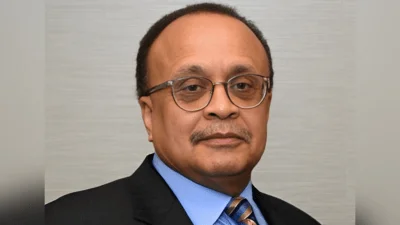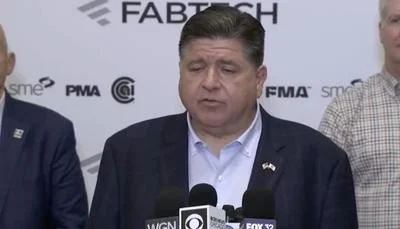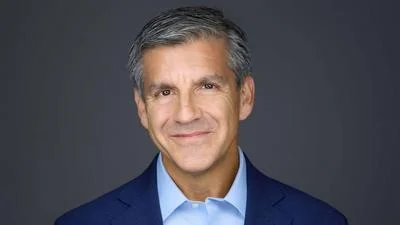The White House | Edgar County Watchdogs
The White House | Edgar County Watchdogs
Today, July 4, 2023, a Federal Judge in Louisiana issued a ruling, which includes a preliminary injunction against the White House, CDC, NIAID, FBI, and others.
Stating “The evidence produced thus far depicts an almost dystopian scenario. During the COVID-19 pandemic, a period perhaps best characterized by widespread doubt and uncertainty, the United States Government seems to have assumed a role similar to an Orwellian “Ministry of Truth.” An “Orwellian ‘Ministry of Truth’” refers to the concept presented in George Orwell’s dystopian novel, ‘1984.’ In the novel, the Ministry of Truth is a governmental institution responsible for altering historical records and disseminating propaganda to manipulate and control public perception.” The Court ruled the Plaintiffs were likely to succeed on the merits of their claims of First Amendment violations concerning the First Amendment, Freedom of Speech, Social Media Platforms, Hunter Biden laptop, and Covid.
From the Introduction:
This case is about the Free Speech Clause in the First Amendment to the United States Constitution. The explosion of social-media platforms has resulted in unique free speech issues—this is especially true in light of the COVID-19 pandemic. If the allegations made by Plaintiffs are true, the present case arguably involves the most massive attack against free speech in United States’ history. In their attempts to suppress alleged disinformation, the Federal Government, and particularly the Defendants named here, are alleged to have blatantly ignored the First Amendment’s right to free speech.
Although the censorship alleged in this case almost exclusively targeted conservative speech, the issues raised herein go beyond party lines. The right to free speech is not a member of any political party and does not hold any political ideology. It is the purpose of the Free Speech Clause of the First Amendment to preserve an uninhibited marketplace of ideas in which truth will ultimately prevail, rather than to countenance monopolization of the market, whether it be by government itself or private licensee.
From the Ruling:
- For the reasons explained herein, the Plaintiffs are likely to succeed on the merits of their First Amendment claim against the White House Defendants, Surgeon General Defendants, CDC Defendants, FBI Defendants, NIAID Defendants, CISA Defendants, and State Department Defendants. In ruling on a motion for Preliminary Injunction, it is not necessary that the applicant demonstrate an absolute right to relief. It need only establish a probable right. West Virginia Highlands Conservancy v. Island Creek Coal Co., 441 F.2d 232 (4th Cir. 1971). The Court finds that Plaintiffs here have done so.
- If there is a bedrock principal underlying the First Amendment, it is that the government may not prohibit the expression of an idea simply because society finds the idea itself offensive or disagreeable. Matal v. Tam, 137 S. Ct. 1744, 1763 (2017); see also R.A.V. v. City of St. Paul, 505 U.S. 377 (1996). The benefit of any doubt must go to protecting rather than stifling speech. Citizens United v. Federal Election Commission, 130 S. Ct. 876, 891 (2010).
- The Court, after examining the facts, has determined that some of the Defendants either exercised coercive power or provided significant encouragement, which resulted in the possible suppression of Plaintiffs’ speech.
The State (i.e., the Government) can be held responsible for a private decision only when it has exercised coercive power or has provided such “significant encouragement,” either overt or covert, that the choice must be deemed to be that of the State. - In evaluating “significant encouragement,” a state may not induce, encourage, or promote private persons to accomplish what it is constitutionally forbidden to accomplish. Norwood v. Harrison, 413 U.S. at 465. Additionally, when the government has so involved itself in the private party’s conduct, it cannot claim the conduct occurred as a result of private choice, even if the private party would have acted independently.
- Additionally, a public official’s threat to stifle protected speech is actionable under the First Amendment and can be enjoined, even if the threat turns out to be empty.
- The Plaintiffs are likely to succeed on the merits on their claim that the United States Government, through the White House and numerous federal agencies, pressured and encouraged social-media companies to suppress free speech. Defendants used meetings and communications with social-media companies to pressure those companies to take down, reduce, and suppress the free speech of American citizens. They flagged posts and provided information on the type of posts they wanted suppressed. They also followed up with directives to the social-media companies to provide them with information as to action the company had taken with regard to the flagged post. This seemingly unrelenting pressure by Defendants had the intended result of suppressing millions of protected free speech postings by American citizens. In response to Defendants’ arguments, the Court points out that this case has much more government involvement than any of the cases cited by Defendants, as clearly indicated by the extensive facts detailed above. If there were ever a case where the “significant encouragement” theory should apply, this is it.
- The White House Defendants made it very clear to social-media companies what they wanted suppressed and what they wanted amplified. Faced with unrelenting pressure from the most powerful office in the world, the social-media companies apparently complied. The Court finds that this amounts to coercion or encouragement sufficient to attribute the White House’s actions to the social-media companies, such that Plaintiffs are likely to succeed on the merits against the White House Defendants.
- For the reasons explained below, both the Plaintiff States and Individual Plaintiffs are likely to prove an injury-in-fact.
- Court finds that [individual] Plaintiffs are likely to succeed in establishing the traceability element of Article III standing.
- Accordingly, the Court finds that Plaintiffs are likely to prove all elements of Article III standing, and therefore, are likely to establish that this Court has jurisdiction.
- The Court finds that Plaintiffs are likely to succeed on their claim that they have shown irreparable injury sufficient to satisfy the standard for the issuance of a preliminary injunction.
- Plaintiffs’ free speech rights thus far outweighs the rights of Defendants, and thus, Plaintiffs satisfy the final elements needed to show entitlement to a preliminary injunction.
- Because Plaintiffs have met all the elements necessary to show entitlement to a preliminary injunction, this Court shall issue such injunction against the Defendants described above.
The Court’s conclusion:
“Once a government is committed to the principle of silencing the voice of opposition, it has only one place to go, and that is down the path of increasingly repressive measures, until it becomes a source of terror to all its citizens and creates a country where everyone lives in fear.” Harry S. Truman.
This story was originally published by Edgar County Watchdogs. Read the original HERE.






 Alerts Sign-up
Alerts Sign-up